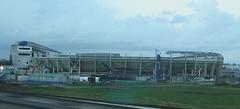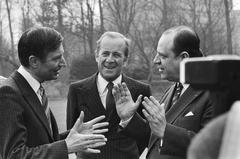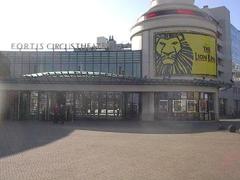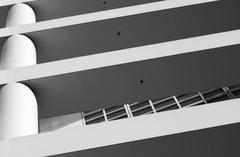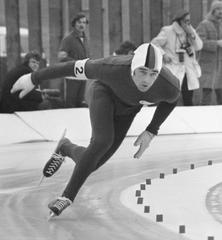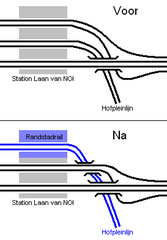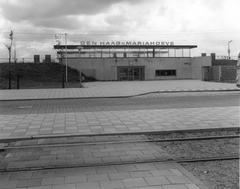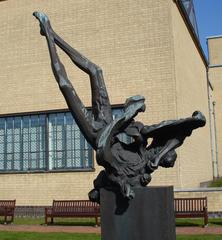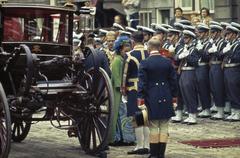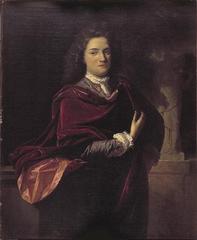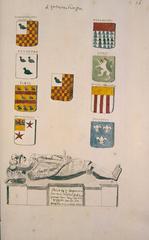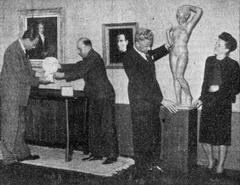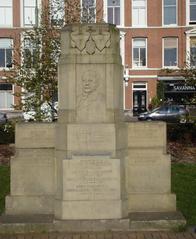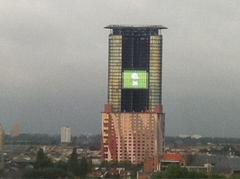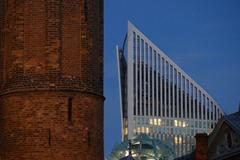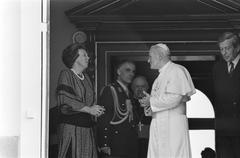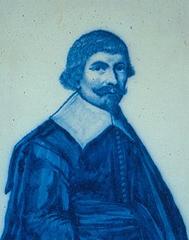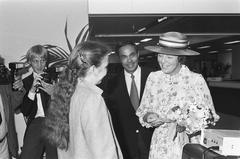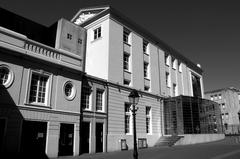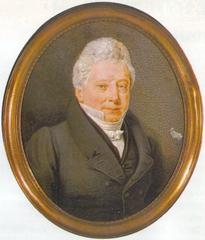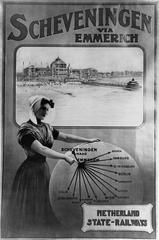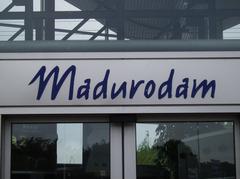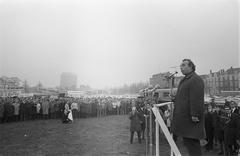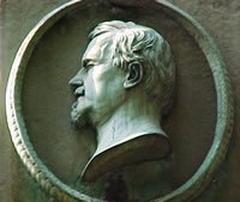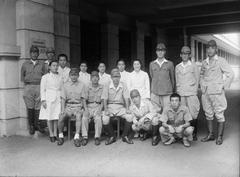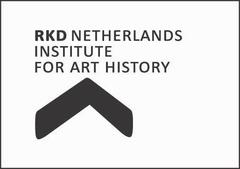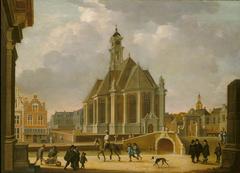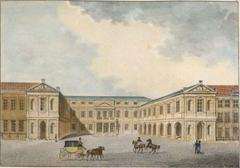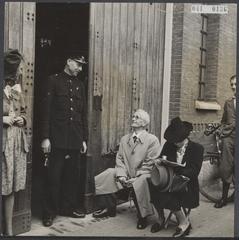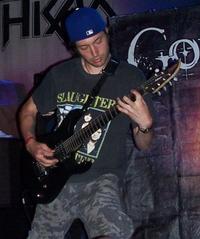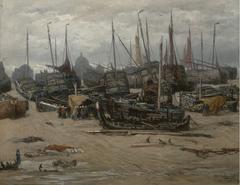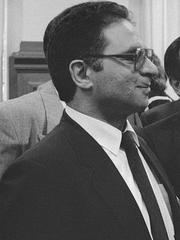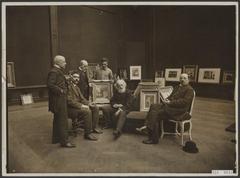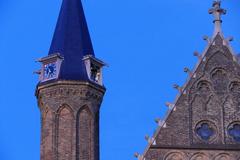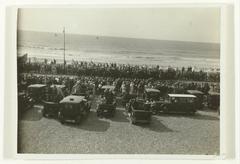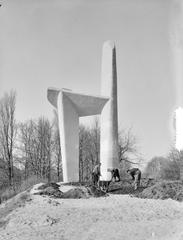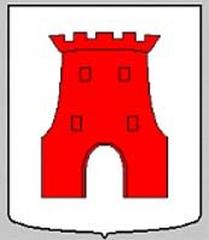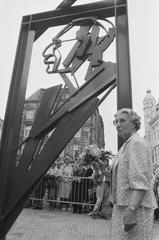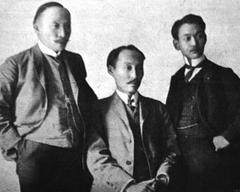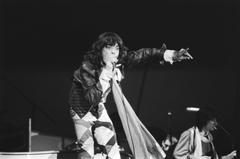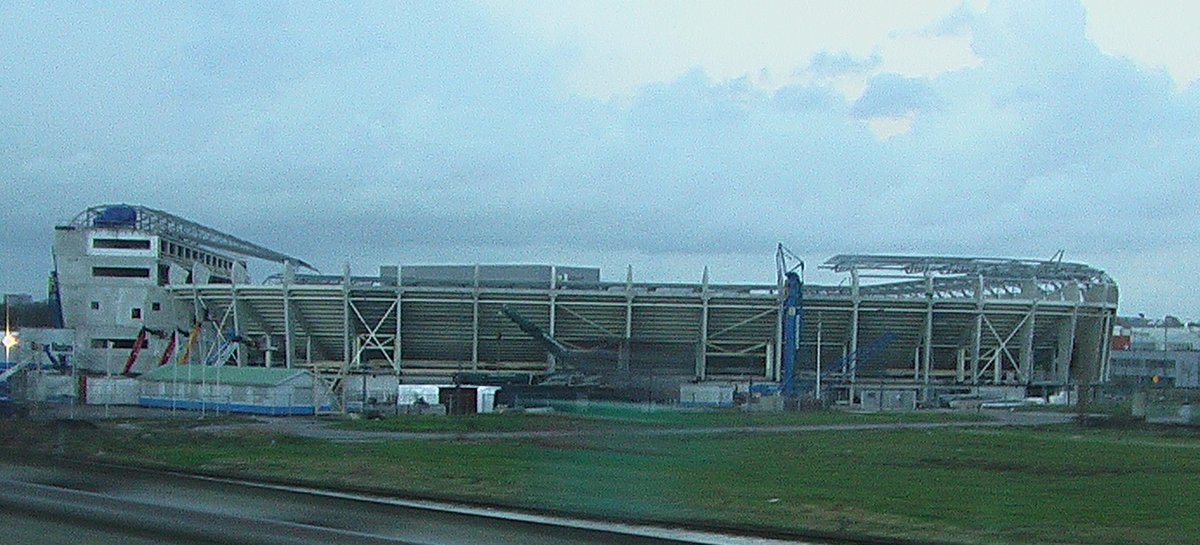
Bingoal Stadion Visiting Hours, Tickets, and Guide to The Hague Historical Sites
Date: 14/06/2025
Introduction to Bingoal Stadion and Its Significance in The Hague
Bingoal Stadion, located in The Hague’s Forepark district, is a modern symbol of Dutch football culture and architectural innovation. Since its official opening in July 2007, it has served as the home of ADO Den Haag, one of the Netherlands’ most storied football clubs. Designed by the renowned architectural firm Zwarts & Jansma, the stadium prioritizes safety, fan experience, and sustainability, accommodating 15,000 spectators and allowing for future expansion (Wikipedia; StadiumDB.com).
The stadium’s distinctive aluminum façade and innovative features—such as an elevated pitch separated from the stands by a moat instead of fencing—enhance both security and sightlines, creating a safe yet intimate environment for fans (Wikipedia). Over the years, the venue has evolved through several naming rights, reflecting broader trends in European football, and since 2022, it carries the Bingoal name (Wikipedia).
Beyond football, Bingoal Stadion holds deep cultural value for The Hague. It symbolizes the enduring legacy of ADO Den Haag, a club founded in 1905 and deeply rooted in the community. The stadium fosters a vibrant matchday atmosphere and serves as a hub for outreach and youth development programs (ADO Den Haag Official). Its strategic location—with excellent public transport links and proximity to cultural landmarks like the Mauritshuis Museum and Peace Palace—makes it a compelling destination for sports fans and cultural tourists alike.
This guide provides a detailed overview of Bingoal Stadion’s history, architecture, visitor information—including ticketing and accessibility—and tips for making the most of your experience in The Hague (ADO Den Haag Official; 3D Stadium Collection).
Contents
- Origins and Construction of Bingoal Stadion
- Evolution of the Stadium’s Name
- Historical Significance in Dutch Football Culture
- Architectural and Safety Innovations
- Notable Events and Community Impact
- Practical Visitor Information
- Visiting Hours
- Tickets
- Accessibility
- Travel Tips
- Nearby Attractions
- FAQ
- Visuals and Interactive Media
- Useful Links
- Conclusion
Origins and Construction of Bingoal Stadion
Construction of Bingoal Stadion began in November 2005 in The Hague’s Forepark industrial area, with the project’s first pile driven in May 2005 (StadiumDB.com). The stadium was conceived by Zwarts & Jansma Architects to seat 15,000 spectators, with provisions for future expansion to 30,000. At a cost of approximately €28 million, the project was a significant investment in the city’s sporting future (Wikipedia).
The stadium’s façade, made entirely of gleaming aluminum, offers a distinctive contemporary appearance. Its design emphasizes safety and the fan experience, with an elevated pitch separated from the stands by a moat—a forward-thinking approach enhancing both security and visibility (Wikipedia). The venue officially opened on July 28, 2007, marking a new era for ADO Den Haag after decades at Zuiderparkstadion.
Evolution of the Stadium’s Name
- ADO Den Haag Stadion (2007–2010): The stadium’s original name reflected its status as the club’s new home (Wikipedia).
- Kyocera Stadion (2010–2017): The venue adopted a new name following a naming rights deal with Japanese company Kyocera (Wikipedia).
- Cars Jeans Stadion (2017–2022): Dutch fashion brand Cars Jeans assumed naming rights, during which the stadium hosted key international events like the 2014 Hockey World Cup (Wikipedia).
- Bingoal Stadion (2022–present): Since June 2022, the stadium has borne the name of Belgian betting company Bingoal (Wikipedia).
Though the stadium’s official name has changed over time, many fans still refer to it as the Aad Mansveld Stadion, honoring a local football legend and underlining the club’s deep community roots (StadiumDB.com).
Historical Significance in Dutch Football Culture
ADO Den Haag, whose name means “Alles Door Oefening” (“Everything Through Practice”), has been a fixture of Dutch football since 1905 (ADO Den Haag Official). The move from Zuiderparkstadion to Bingoal Stadion marked a significant step in the club’s development, offering a modern venue with enhanced facilities and the capacity to host international events.
The stadium’s atmosphere is renowned for its energy, with passionate fans—especially in the Midden Noord section—creating a fortress-like setting. The stork, a symbol of The Hague, is featured prominently in the club’s crest and throughout the stadium, reinforcing the connection between club and city (ADO Den Haag Official).
Architectural and Safety Innovations
Bingoal Stadion is recognized for several pioneering features:
- Moat Instead of Fencing: The pitch is elevated and separated from the stands by a moat, enhancing safety and visibility without compromising the intimacy of the experience (Wikipedia).
- Advanced Security: Over 100 surveillance cameras and biometric facial recognition technology provide a safe environment for all attendees (Wikipedia).
- Sustainability: Solar panels installed in 2014 generate electricity equivalent to the annual needs of 200 households, reflecting the club’s environmental commitment (StadiumDB.com).
Notable Events and Community Impact
Beyond football, Bingoal Stadion’s flexible infrastructure enables it to host various events, including the 2014 Hockey World Cup, when a temporary hockey pitch was installed (Wikipedia). The stadium is also a center for youth development and community outreach, underpinning ADO Den Haag’s vital role in local society (ADO Den Haag Official).
Practical Visitor Information
Visiting Hours
- Match Days: Stadium opens approximately 1.5–2 hours before kickoff.
- Guided Tours: Available by appointment on non-match days. Typical hours are 10:00–16:00, but check the official website for current details.
Tickets
- Purchase: Online via the ADO Den Haag website, at the stadium box office, or through authorized vendors.
- Pricing: Ranges from €15 for standard seats to €50 for VIP areas; group and season tickets available. Early booking is recommended, especially for high-demand matches.
Accessibility
- Facilities: Wheelchair-accessible seating, ramps, elevators, and restrooms. Assistance can be arranged in advance.
- Parking: Disabled parking spaces are near stadium entrances.
Travel Tips
- Public Transport: Easily accessible via tram (lines 3 & 4), bus, and Forepark train station. NS Station Den Haag Ypenburg and tram line 19 (Station Ypenburg) are also nearby (denhaag.com).
- Cycling: Ample bike parking is provided.
Nearby Attractions and Photographic Spots
- Binnenhof: Historic parliamentary complex.
- Mauritshuis Museum: Showcasing Dutch Golden Age paintings.
- Peace Palace: Headquarters of the International Court of Justice.
The stadium’s modern aluminum façade and moat make it an appealing subject for photography, especially from the elevated stands.
Stadium Layout and Amenities
- Family Blocks: For a relaxed matchday, family blocks (T, U, V, W) offer a safe environment.
- Supporter Sections: Hardcore fans gather in blocks K–S, while blocks D–J host lively supporter groups (ADO Den Haag Stadium Layout).
- Premium Areas: VIP lounges and premium seating (blocks A, C) provide exclusive amenities.
- Away Section: Block X is reserved for visiting fans.
Other features include modern concession stands, merchandise shops, accessible restrooms, and state-of-the-art security systems (A View From My Seat; Transfermarkt).
Sustainability Initiatives
While not the most advanced in eco-friendly stadium trends, Bingoal Stadion has taken steps toward sustainability:
- Green Materials: Use of modern, efficient building materials (emagazine.com).
- Energy Efficiency: LED lighting and infrastructure ready for renewable energy upgrades (yellowbrick.co).
- Water Conservation: Water-saving fixtures and recycling systems are likely part of ongoing upgrades (yellowbrick.co).
- Community Engagement: The stadium promotes cycling and public transport to reduce its environmental footprint (yellowbrick.co).
Frequently Asked Questions (FAQ)
Q: What are Bingoal Stadion’s visiting hours?
A: On matchdays, the stadium opens 1.5–2 hours before kickoff. Guided tours are available by appointment on non-match days.
Q: How do I buy tickets?
A: Purchase tickets online, at the stadium box office, or through authorized vendors.
Q: Is the stadium accessible?
A: Yes, it offers barrier-free entrances, designated seating, and facilities for guests with reduced mobility.
Q: What transport options are available?
A: Tram lines 3 and 4, nearby Forepark train station, and several bus routes serve the stadium.
Q: Are there food and merchandise outlets?
A: Yes, there are various food, beverage, and merchandise options throughout the stadium.
Q: Can I book a group tour?
A: Yes, group and school tours can be arranged via the club’s website.
Visuals and Interactive Media
Alt tags for accessibility: “Bingoal Stadion exterior in The Hague”, “ADO Den Haag seating layout”, “Moat and pitch at Bingoal Stadion”.
Useful Links
- Official ADO Den Haag Website
- ADO Den Haag Stadium Layout
- Den Haag Tourism Portal
- 3D Stadium Collection
- A View From My Seat
- Transfermarkt - ADO Den Haag Stadion
Conclusion
Bingoal Stadion is a modern, accessible, and sustainable sports venue that embodies the spirit of The Hague and its football tradition. Whether you are attending an ADO Den Haag match, joining a guided tour, or exploring nearby historical sites, the stadium offers a rich and memorable experience. For updated information on visiting hours, ticketing, and events, visit the ADO Den Haag website or the Den Haag tourism portal.
Embrace Dutch football culture and community—plan your visit to Bingoal Stadion today!
Sources and Further Reading
- Wikipedia
- StadiumDB.com
- ADO Den Haag Official
- ADO Den Haag Stadium Layout
- Den Haag Tourism Portal
- 3D Stadium Collection
- A View From My Seat
- Transfermarkt - ADO Den Haag Stadion
